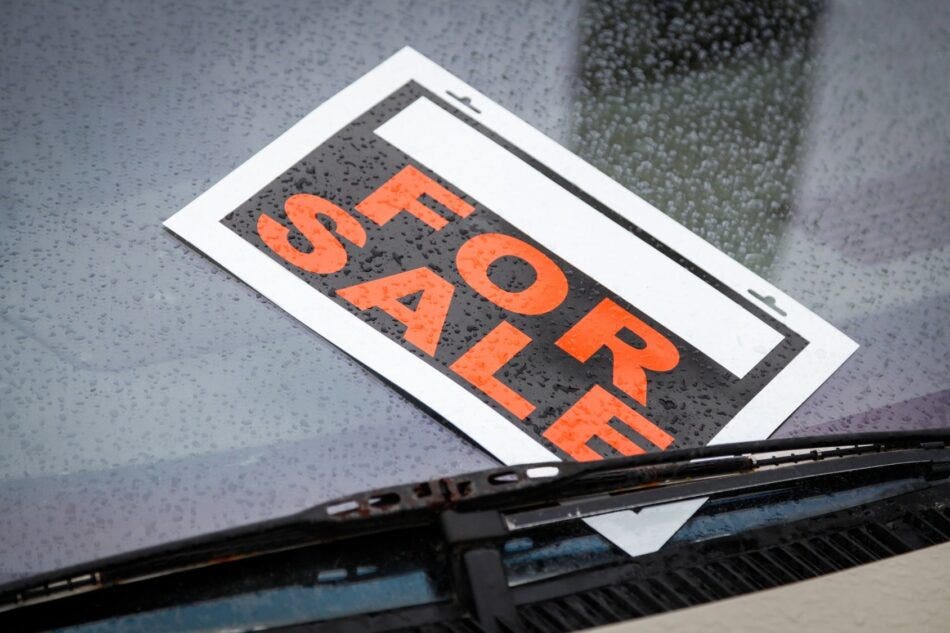You’ve decided that it’s time for a new car. Great! Everyone loves the excitement of buying a brand new vehicle the fresh style that new car smell the way it makes you feel. But first you probably have an older model that you need to sell. Now comes the great private sale versus dealer trade or sell debate.
There are certainly many advantages to selling the car yourself. Namely you stand to make more money than if trading it or selling to a dealership. Remember the dealership needs to make money on the transaction which means they are less likely to give you what the vehicle is actually worth. Whereas when privately selling you can list the car for its market value.
The downside to this approach is that there is quite a bit more work involved than simply driving it to the dealer and handing over the keys. The “ease factor” is definitely one for the dealership side. As a private seller you now have to take time out of your schedule to meet with people to arrange test drives and to deal with the financing/money exchange aspect of the interaction. There is a lot to consider when thinking about selling your car on your own. But if maximizing how much you receive for your car is of the utmost importance to you then a private sale is probably the way you’re going to want to go.
From an Insurance Perspective How Does Selling a Vehicle Work?
Once you’ve decided to sell the car yourself there are certain critical details that you have to take into consideration. Many people tend to overlook the insurance implications of selling a vehicle on their own. But think about it… the potential buyer will be driving your car. Are you covered? When handing over the keys do you need to make certain that insurance is in place and thus no longer in your name? It’s not a bad idea to first discuss it with your insurance broker so that you get a more comprehensive picture of what exactly is involved with this process. Keep in mind too that you do not want to cancel your insurance policy on that car prior to selling it.
During the test drive phase for instance most car insurance companies will cover other drivers in your vehicle. You definitely want to make sure that this is the case as far as your particular policy is concerned. Also make sure you approach this in a safe way. Get a copy of their license. Agree on where the car will be driven during the actual ride. Be smart about how you handle a test drive.
What about an inspection? It’s always a great idea to have your car inspected prior to listing it for sale by owner. This lets you know if there are any problems or issues that you need to address before you sell it. And it shows the potential buyer that you have been vigilant when it comes to the upkeep and maintenance of your vehicle. You can thus present them the inspection report and help lend more credibility to the transaction. Some buyers may opt to do their own pre-purchase inspection as well.
Also when selling a car on your own you need to have a bill of sale prepared. This is simply a document that both parties sign and that contains information regarding the vehicle to include model make and VIN along with the details of the transaction itself. At this point you as the seller would sign over the registration and then you can effectively remove your insurance coverage as it pertains to the vehicle in question.
Selling a Car on Your Own – Watch Out for Scams!
Given that we do live in a digital world car selling has really never been easier…or more susceptible to scams. It is so important that you be on the lookout and know how to spot the signs of a potential scam. For instance one such swindle involves Paypal. A most popular platform where buying and selling are concerned it can also unfortunately be manipulated by those looking to cheat you. People sell their vehicle and the buyer pays via Paypal. They then receive the merchandise the money is showing in your account and all seems good. The problem however is that with Paypal and other such online money exchange channels the seller cannot access the money until the buyer advises that they’ve received the goods. So in this particular scam the purchaser denies they ever received anything. Now they have your car and you have no money to show for it.
We are certainly not dissuading you from trying to sell your car on your own. However be careful with your choices make sure you take everything possible into consideration and when in doubt consult your insurance broker regarding the way in which you should handle policy issues as you try and sell your vehicle.

